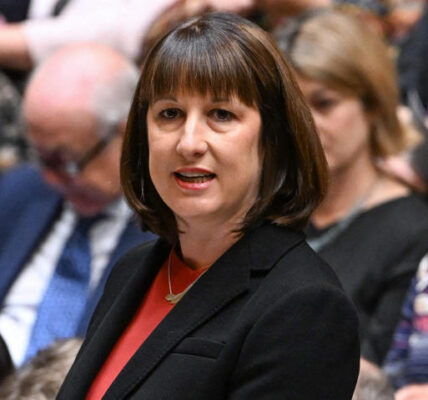Calling people without jobs ‘economically inactive’ is ‘terrible’ because they are ‘real human beings’ says Work and Pensions Secretary Liz Kendall_Nhy
Labour’s new Work and Pensions Secretary has complained that it is ‘terrible’ to call people who are unemployed and not trying to find a job ‘economically inactive’, because they are ‘human beings’
Liz Kendall told MPs she did not like the official term used by bodies including the Office of National Statistics (ONS) because of its dehumanising nature.
She made the remark as she was grilled about the new government’s plan to get people signed off on long-term sick leave back into work.
Economic inactivity is characterised by the ONS as ‘people not in employment who have not been seeking work within the last four weeks and/or are unable to start work within the next two weeks’.
Last week it was revealed that the soaring bill for health and disability benefits will wipe out the Treasury’s £25billion Budget national insurance raid by 2030.
The government’s watchdog has forecast an eye-watering increase in handouts by the end of the decade to more than £100billion a year.
At her first grilling by the Work and Pensions Committee, Ms Kendall said: ‘I think this is the biggest employment challenge we face, although we’ve seen some changes in the latest stats, unemployment – official unemployment – is still low by historic standards.
‘But we have seen this really worrying increase in the number of people who are what’s termed economically inactive.
‘In a way, it’s a terrible phrase, because this is real human beings.’

Liz Kendall told MPs she did not like the official term used by bodies including the Office of National Statistics (ONS) because of its dehumanising nature.
The benefit level is due to increase from £64.7billion in 2023-24 to £74.9billion this year, and £100.7billion in 2029-30, according to the Office for Budget Responsibility (OBR).
It warned that this estimate was ‘uncertain’ because of the complex factors involved – meaning it could end up being even higher.
Such a surge would effectively eat up the extra revenue from hiking employer NICs, which brings in roughly £25billion a year – not accounting for the costs of offsetting the impact on the public sector.
Ms Kendall also used her appearance to claim there is no ‘tension’ between plans to make savings from limiting winter fuel allowance to the poorest pensioners and more people taking up pension credit, Liz Kendall has signalled.
The winter fuel payment, worth up to £300, is being restricted to only those claiming pension credit from this winter, with the aim of saving the public purse £1.5 billion a year.
As more people apply for pension credit the savings will likely fall, but the Work and Pensions Secretary suggested she was comfortable with this as she appeared before a committee of MPs.
Ms Kendall said she wanted to see a 100% take-up of pension credit ‘regardless’ of how this impacted on the Government’s attempts to plug a hole in the public finances.
‘I would like every pensioner who is entitled to pension credit, up to £3,900, to get it, yes,’ she told the Commons Work and Pensions Committee.
Pressed on whether this would be the case regardless of costs to the Government, she added: ‘Regardless, because they are entitled to it. That is what I want to see.
‘Now, I am not claiming I am going to give you a date, this is the time by which it is hard, but I am determined to do everything I can.’
Asked if there was a tension in Government about this, Ms Kendall said: ‘For me there is no tension because I think it is a scandal that over 800,000 pensioners, the poorest pensioners, are losing up to £3,900 in pension credit that they should be entitled to.’
She also hinted at an interest in reforming the pension credit application process, telling MPs: ‘I also know that over many years we have not been able to solve this because people, it is difficult to increase take up. People don’t want to claim, they feel a stigma or ashamed of claiming. The pension credit form is very long.
‘We have got more people doing this online now but we have got to solve that and I think it should not be beyond the wit of man or even womankind to actually solve this problem which is why ultimately we have got to make this a much more automatic entitlement.
‘So for me there is no tension because I am going to move heaven and earth to do what I can to stop that because it is not right.’
Ministers have faced criticism for slashing access to the winter fuel payment, with opposition MPs urging them to rethink the move.
The Social Security Advisory Committee, a group of independent experts who advise the Department for Work and Pensions (DWP), has meanwhile said the savings from limiting the allowance to only the poorest pensioners are unclear and could be outdone by a rise in those seeking pension credit.
The DWP began publishing data for weekly pension credit applications after Rachel Reeves said in July she would limit the winter fuel allowance.
The figures showed a sharp uptick in the number of claims following the Chancellor’s announcement, with numbers remaining over ten thousand each week until publication ceased in mid-September.
A further update to the statistics is expected in late November



